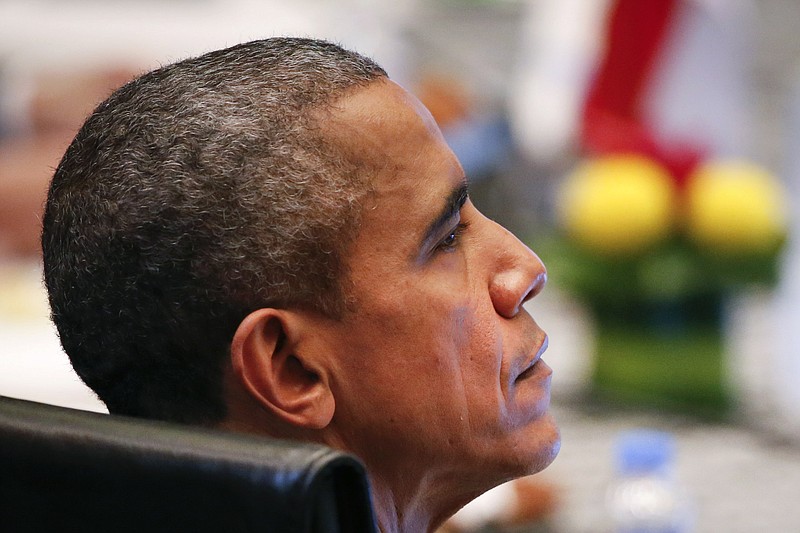People want to believe their presidents. They do.
But President Barack Obama sends such mixed messages with his Middle East policy, Americans don't know what to believe. Or fear. Or not worry about.
The same Islamic State group he once referred to as a "JV team" he now says "we will destroy." But this is the same organization he said just a few weeks ago, before the attacks on Paris, was "contained" and could be defined simply as "a bunch of killers with good social media."
Why would you need to destroy something that is contained?
Trying to reassure the nation from Malaysia on Sunday, Obama spoke words that sounded like those of his predecessor, George W. Bush, after the terrorist attacks of 9/11.
"We do not succumb to fear," he said. "The most powerful tool we have to fight [the Islamic State] is to say that we're not afraid, to not elevate them, to somehow buy into their fantasy that they're doing something important.
"I think it is absolutely vital for every country, every leader, to send a signal that the viciousness of a handful of killers does not stop the world from doing vital business."
Obama is right, just as Bush was, to assure his fellow Americans that they need not live in fear, that they need not worry that the Islamic State might be plotting attacks in every city.
But with Bush, like him or not, unlike with Obama, you believed he took the threat seriously.
Americans long for a leader, in perilous times in the world, who will level with them. Whether Obama can be that leader, especially on this issue and with 14 months left in his presidency, is questionable.
It's questionable because his concern with the Islamic State seems to be somewhere behind climate change, Republicans and how Iran might perceive any action he takes against the Islamic State.
Climate change, on which he will deal with other nations in Paris early next month, seems to be his top priority, the ticket to his legacy as the "citizen of the world" he proclaimed himself in 2008. Hammering Republicans, who legitimately oppose his policies, is a close second. And his desire to mollify terror sponsor Iran, with which the U.S. concluded a one-sided nuclear deal earlier this year and which supports U.S. foe President Bashar Assad of Syria, is third.
So we'd like to believe the president has a strategy in the Middle East. We'd like to believe he has a strategy for dealing with the Islamic State. We'd like to believe he has a strategy for keeping the U.S. secure. But his words and actions are all over the place, hardly inspiring the confidence we need and the country deserves.
